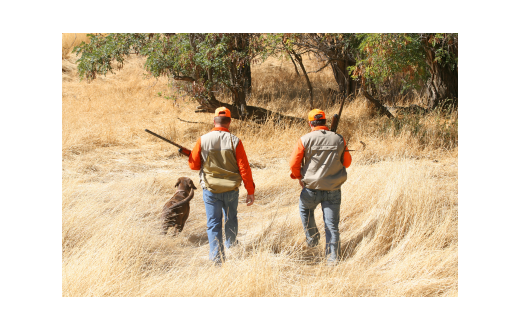Hunting is a long-standing tradition that has been practiced for centuries, providing food, recreation, and a connection to nature for countless individuals. However, with this pursuit comes great responsibility. Ethical hunting practices involve not only abiding by laws and regulations but also prioritizing respect for wildlife, the environment, and fellow hunters. In this blog post, we will explore the importance of responsible firearm use and hunting ethics, emphasizing the need for sustainable practices in the wilderness.
Understanding the Role of Firearms
Firearms play a pivotal role in hunting, providing hunters with the means to harvest game. However, it is crucial to approach their use with utmost respect and responsibility. Hunters should prioritize safety by handling firearms with care, maintaining proper training, and adhering to all relevant laws and regulations. Additionally, regularly practicing marksmanship skills is essential to ensure ethical kills, minimizing suffering and promoting a clean harvest.
Ethical Harvesting
The cornerstone of ethical hunting lies in the concept of fair chase and ethical harvesting. Fair chase emphasizes giving game animals a reasonable opportunity to escape and employing hunting methods that respect the animal’s natural instincts and behavior. This means avoiding practices such as baiting, spotlighting, or using illegal hunting techniques that give an unfair advantage to the hunter. Ethical hunters embrace the challenge and the inherent unpredictability of the hunt, fostering a deeper connection with nature.
Respect for Wildlife and the Environment
Responsible hunters understand the interconnectedness of wildlife, habitat conservation, and sustainable hunting practices. They strive to minimize their impact on the environment and wildlife populations. This includes practicing selective hunting, targeting specific species and individuals within sustainable limits, and avoiding overharvesting. Furthermore, hunters should make efforts to understand the ecosystems they are a part of, advocating for conservation initiatives and supporting organizations that protect and manage wildlife and their habitats.

Responsible Game Management
Hunting plays a vital role in wildlife management and population control. Ethical hunters recognize the need for responsible game management to ensure the long-term health and stability of ecosystems. This involves staying informed about local hunting regulations, seasons, and bag limits established by wildlife management authorities. Additionally, hunters can contribute by reporting observations and participating in data collection programs, helping authorities make informed decisions about wildlife management.
Ethical Conduct in the Wilderness
Hunting ethics extend beyond the actual act of hunting. Respectful behavior in the wilderness is paramount. Hunters should practice leave-no-trace principles, minimizing their impact on the environment by properly disposing of waste, respecting private property, and adhering to designated hunting areas. Showing consideration for fellow hunters, hikers, and outdoor enthusiasts by maintaining good communication, displaying proper firearm etiquette, and practicing safe hunting distances is also crucial.
Responsible hunting involves more than just pursuing game with a firearm. It requires a deep appreciation for the environment, a commitment to ethical practices, and a genuine concern for wildlife conservation. By approaching hunting with respect, knowledge, and an understanding of sustainable practices, hunters can contribute to the preservation of our natural heritage while enjoying the rich experience the wilderness has to offer. Let us remember that ethical hunting is not just about the hunt but also about the profound connection we develop with nature and our responsibility to leave a positive impact for future generations.

